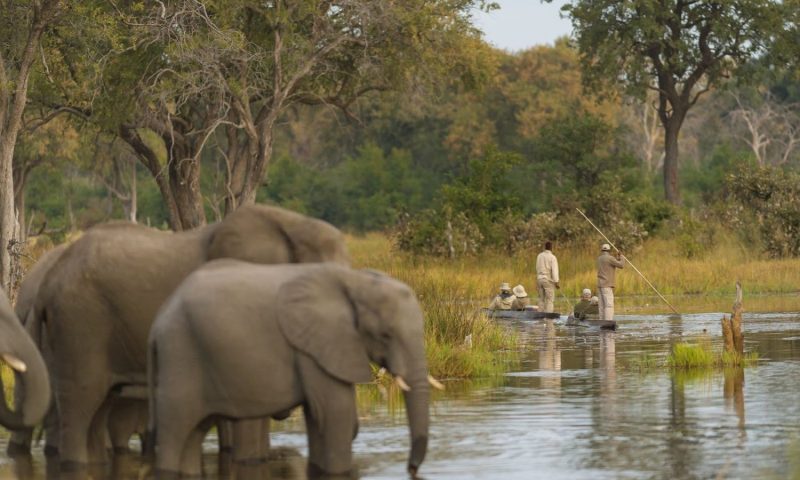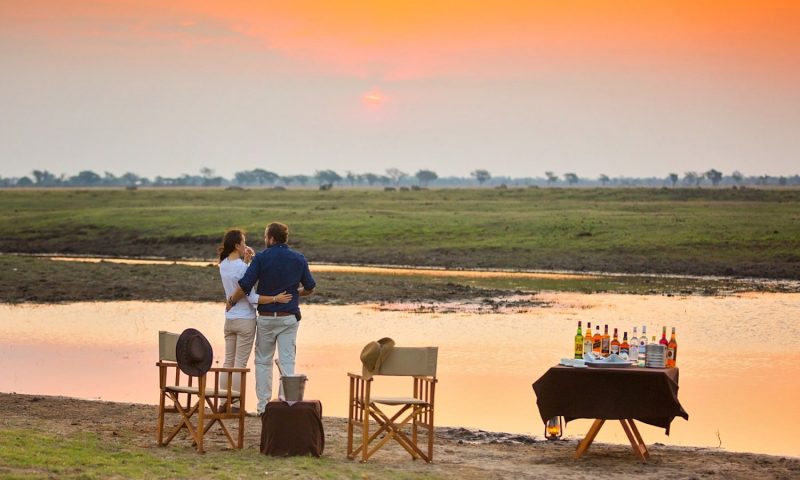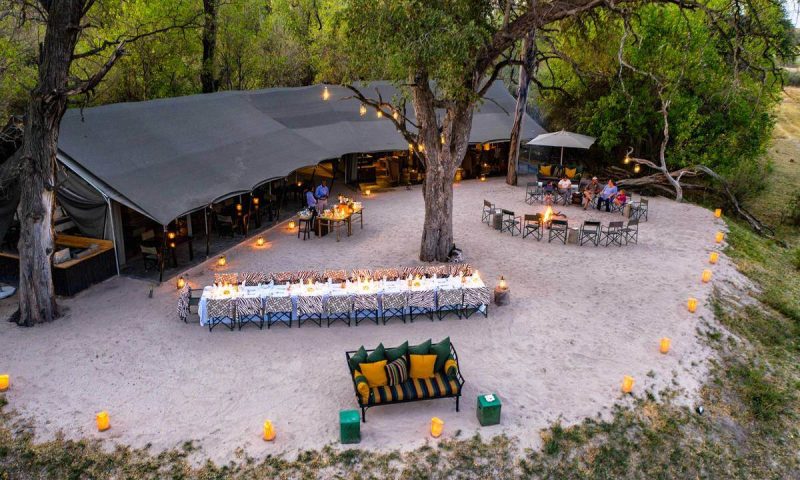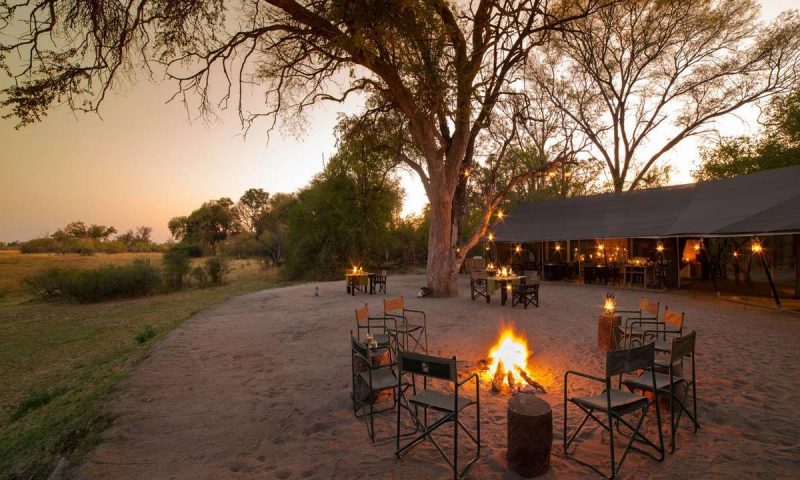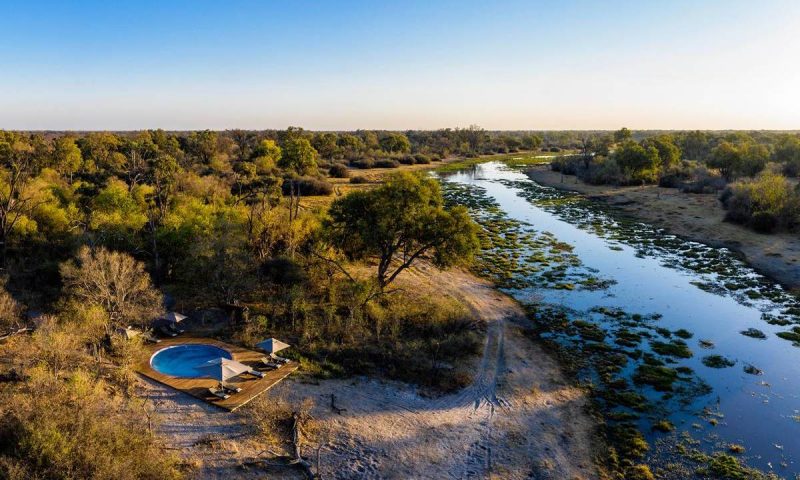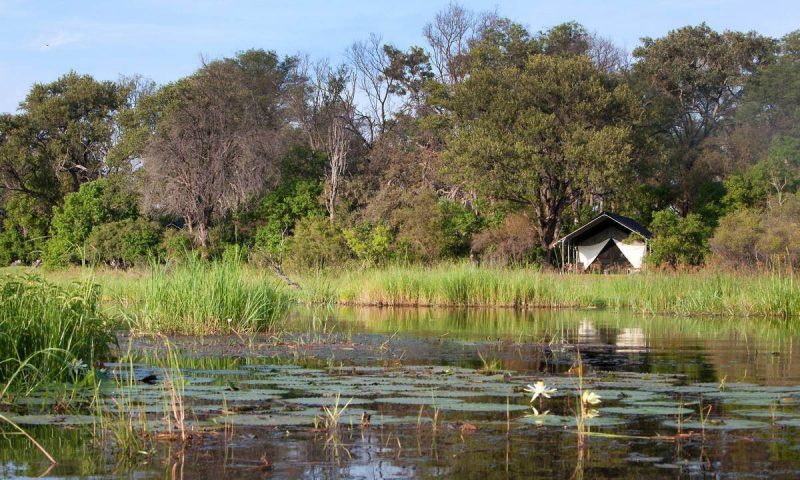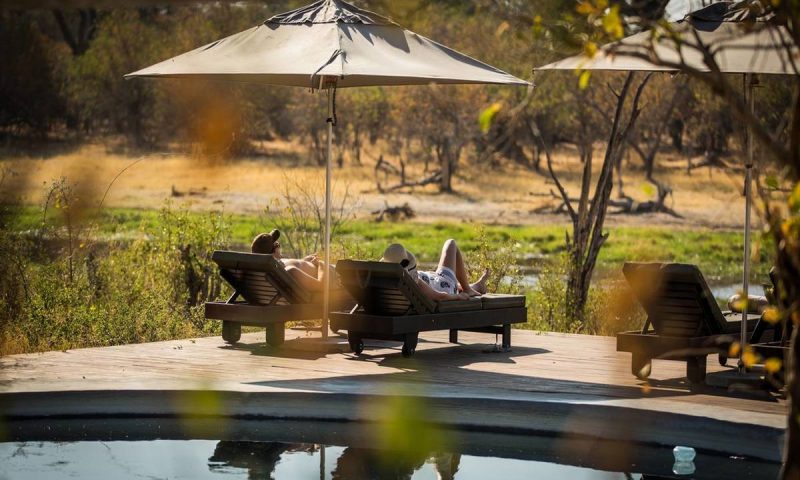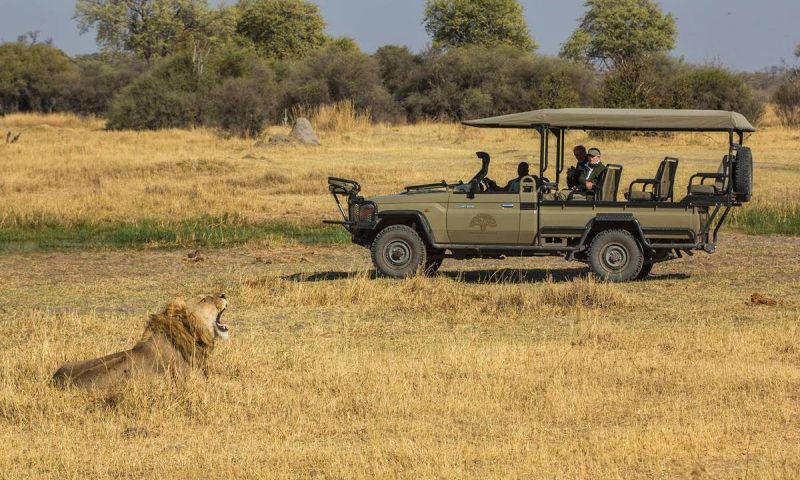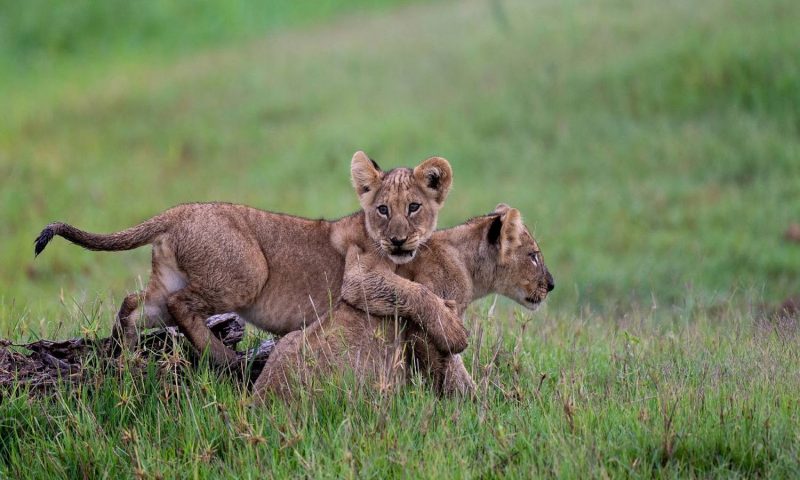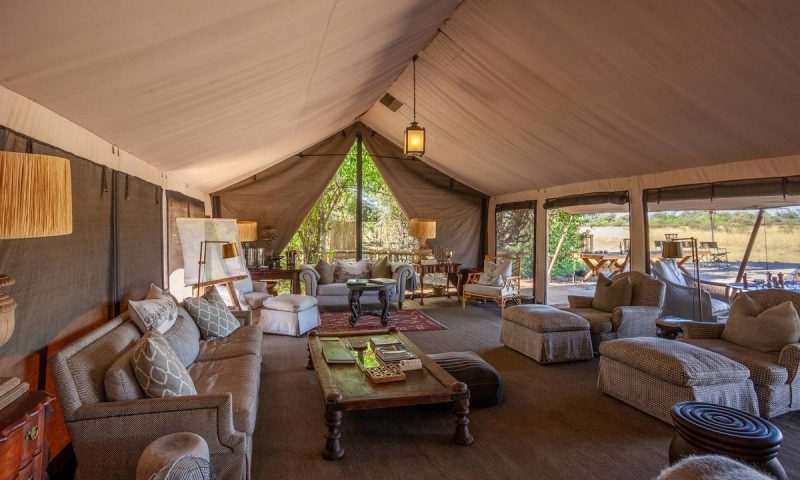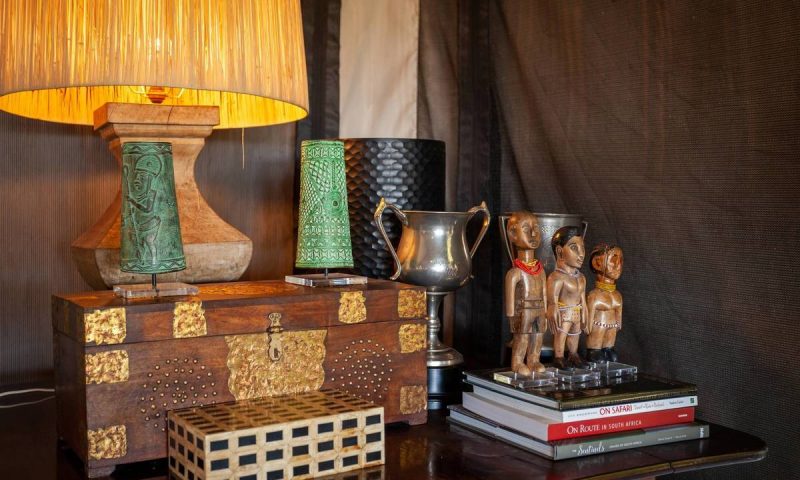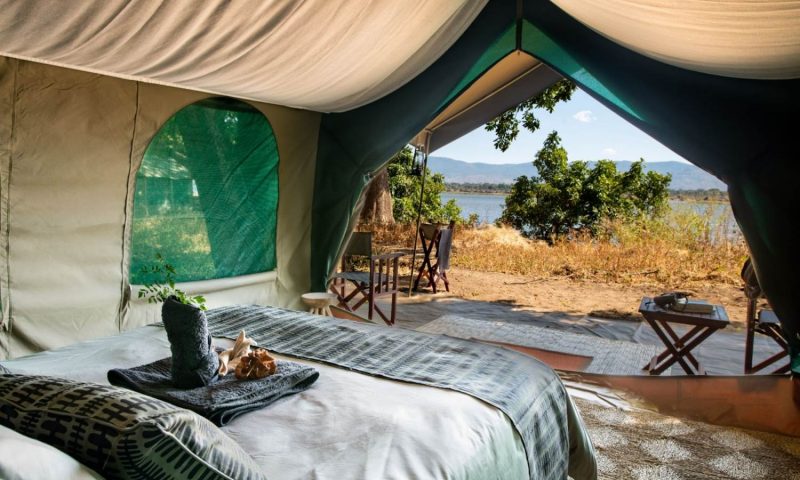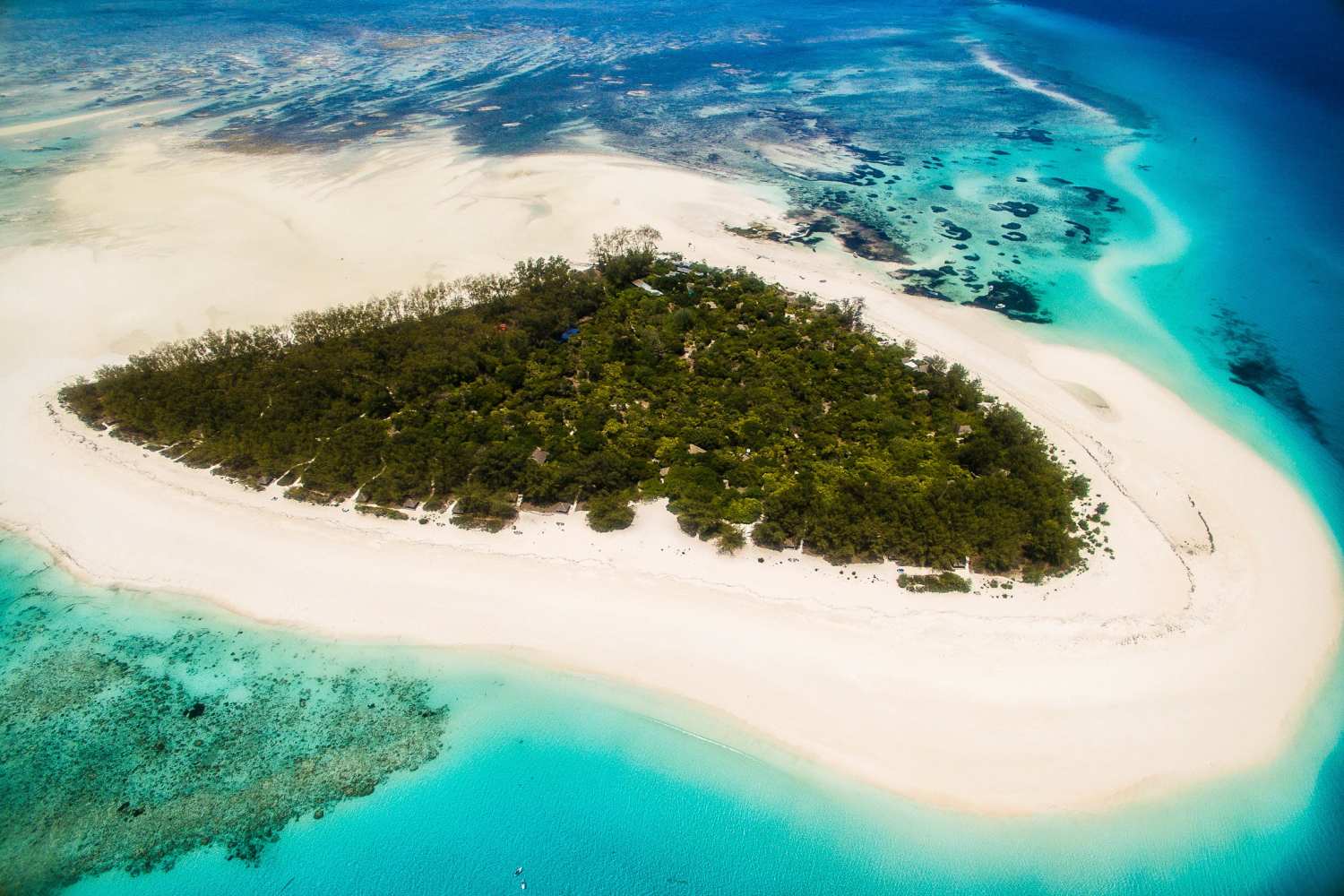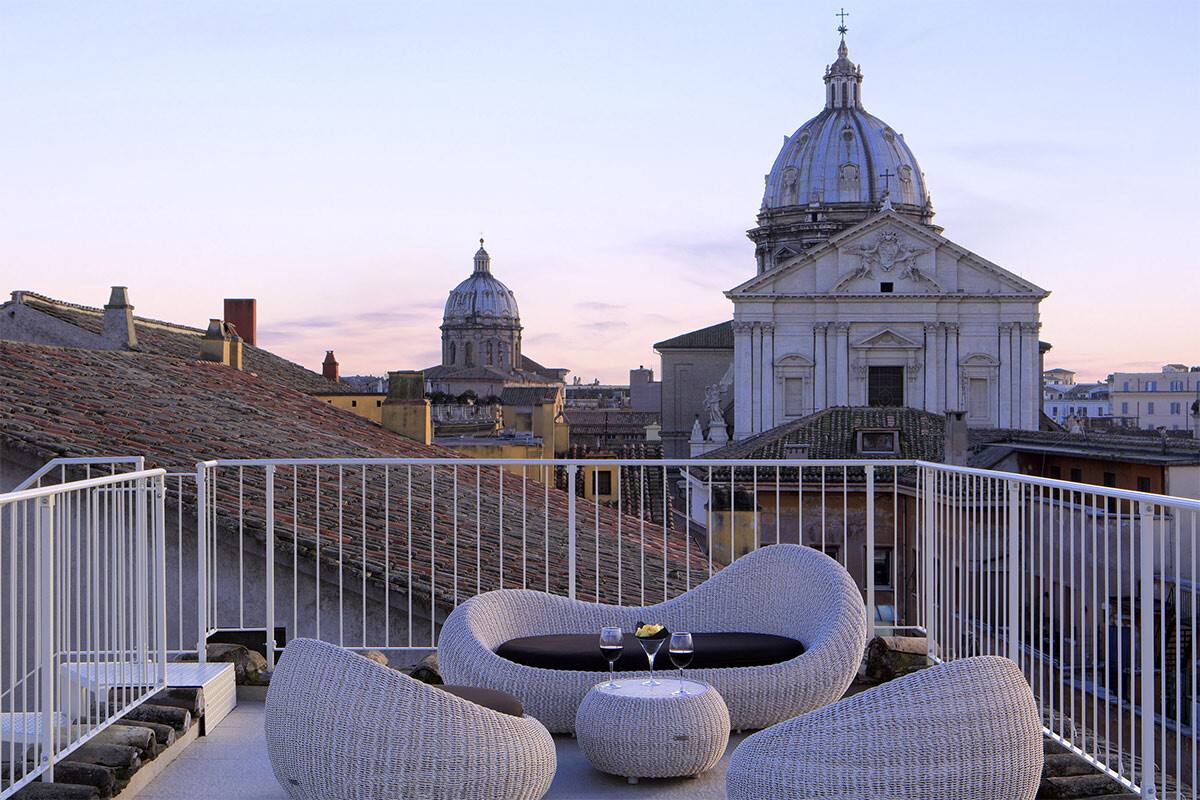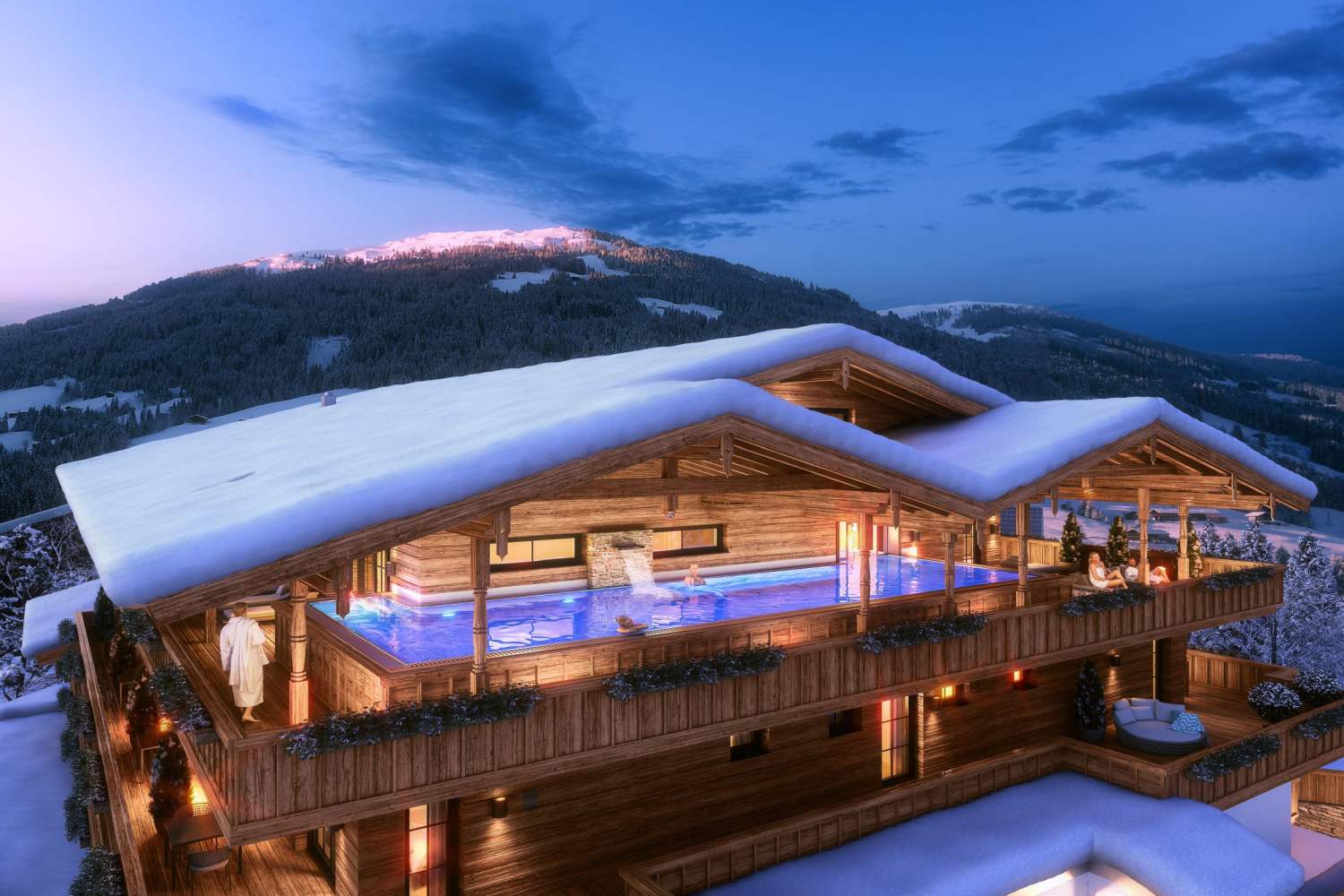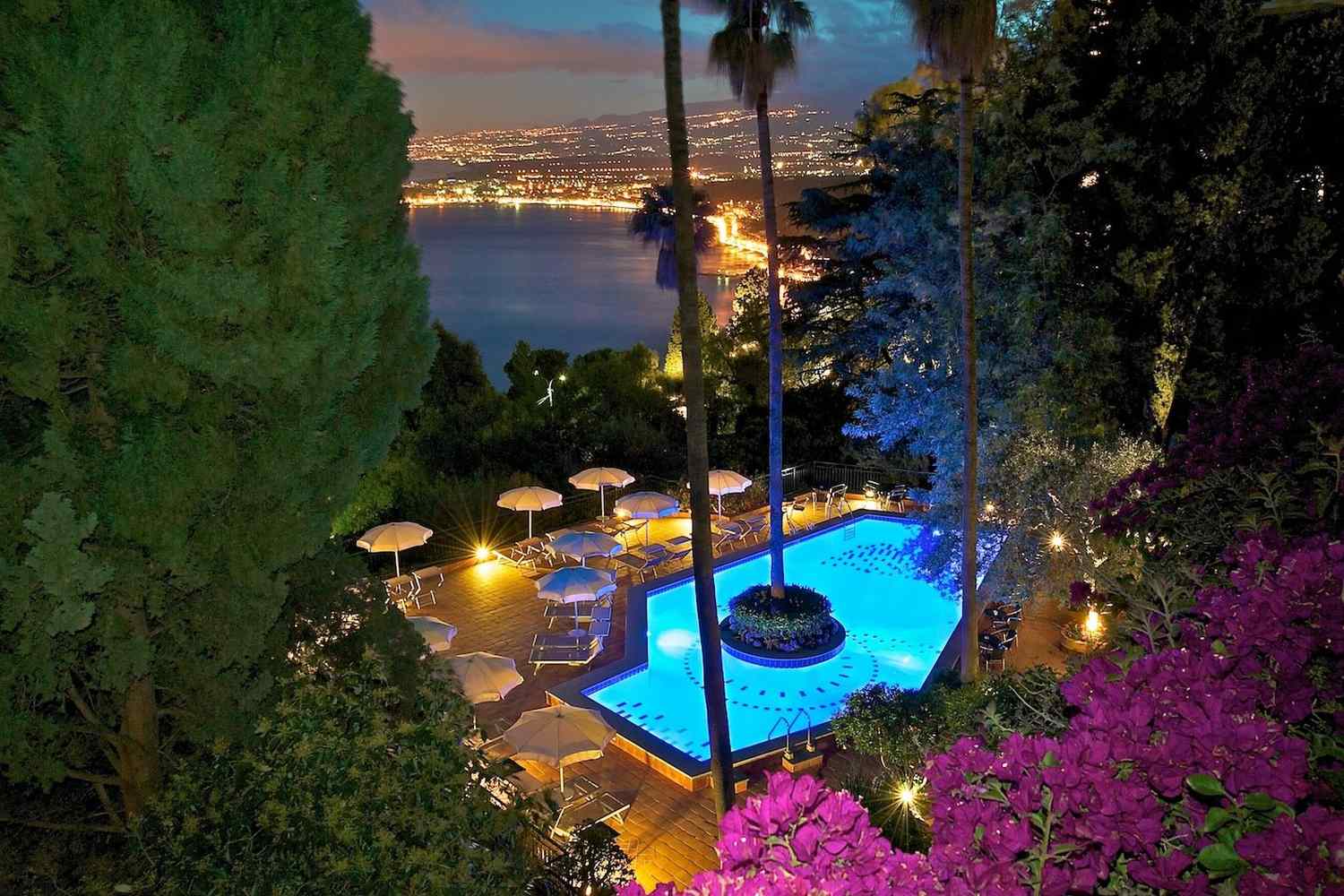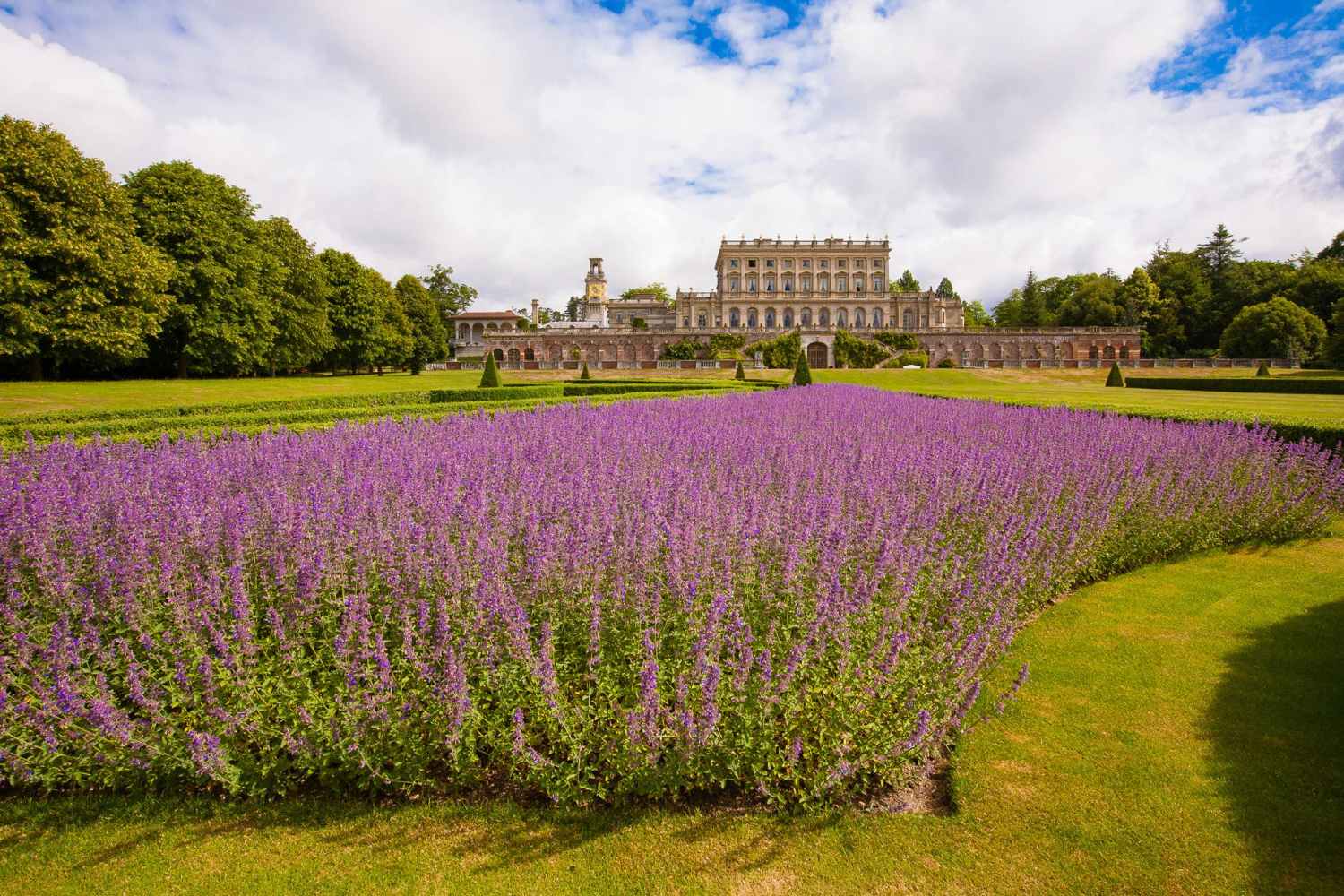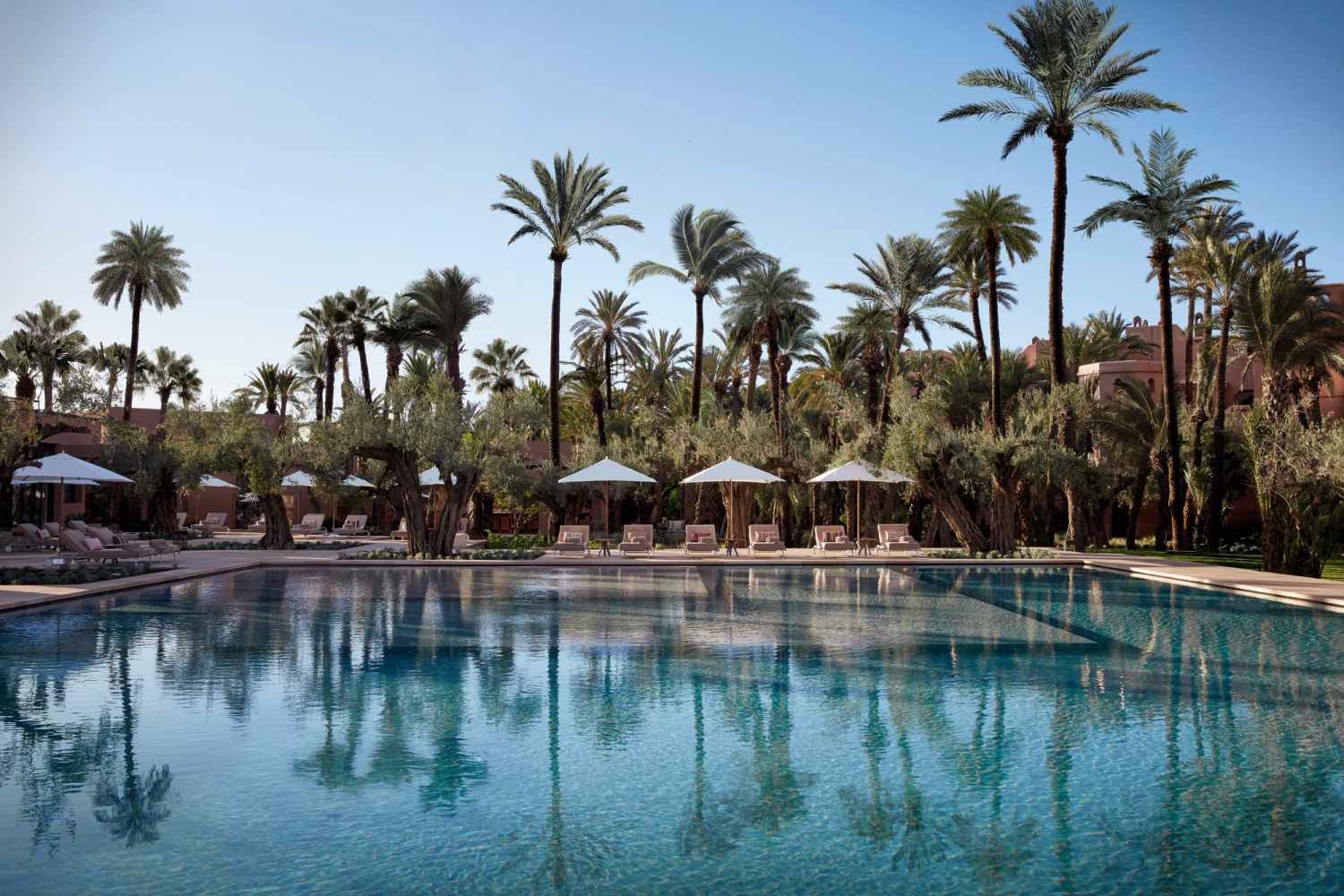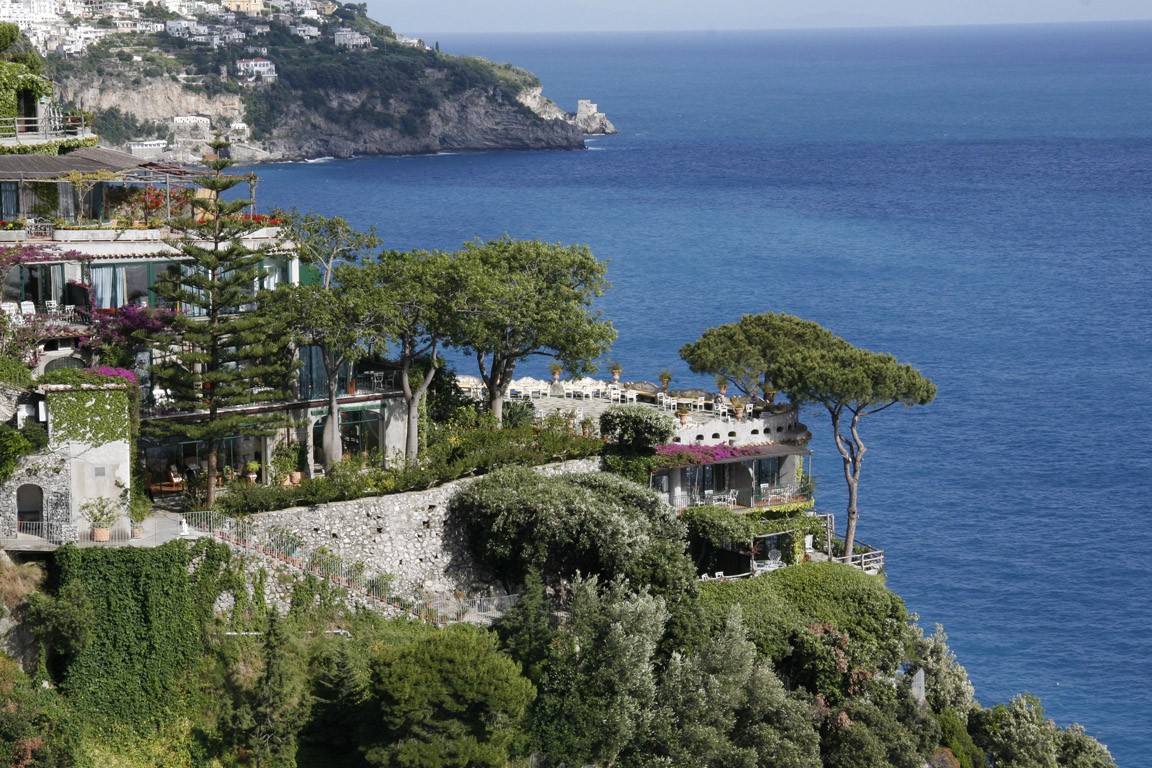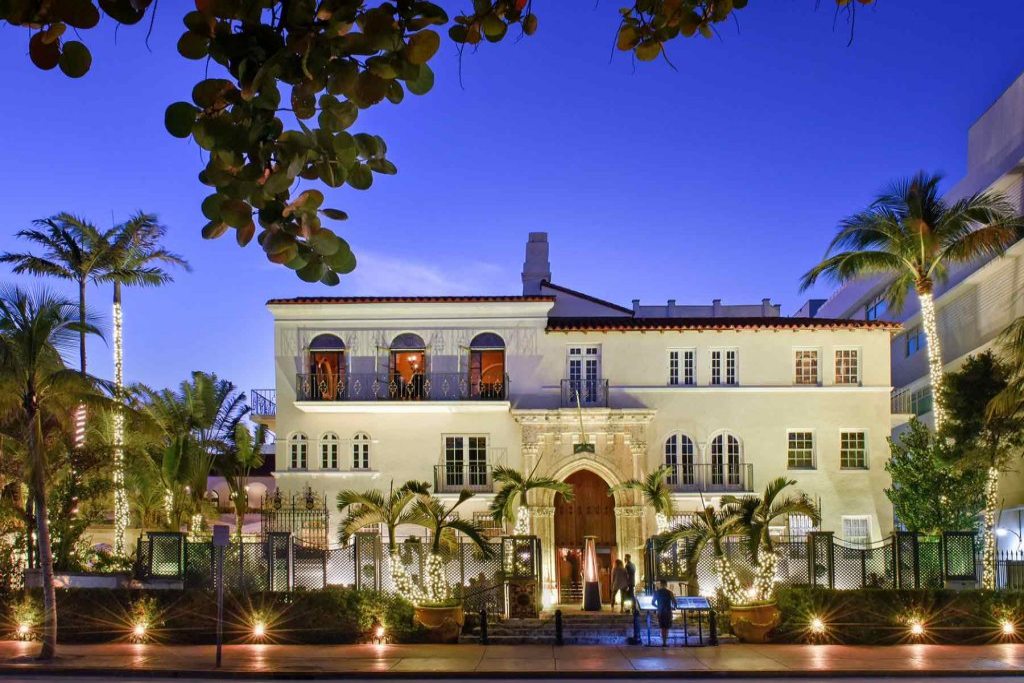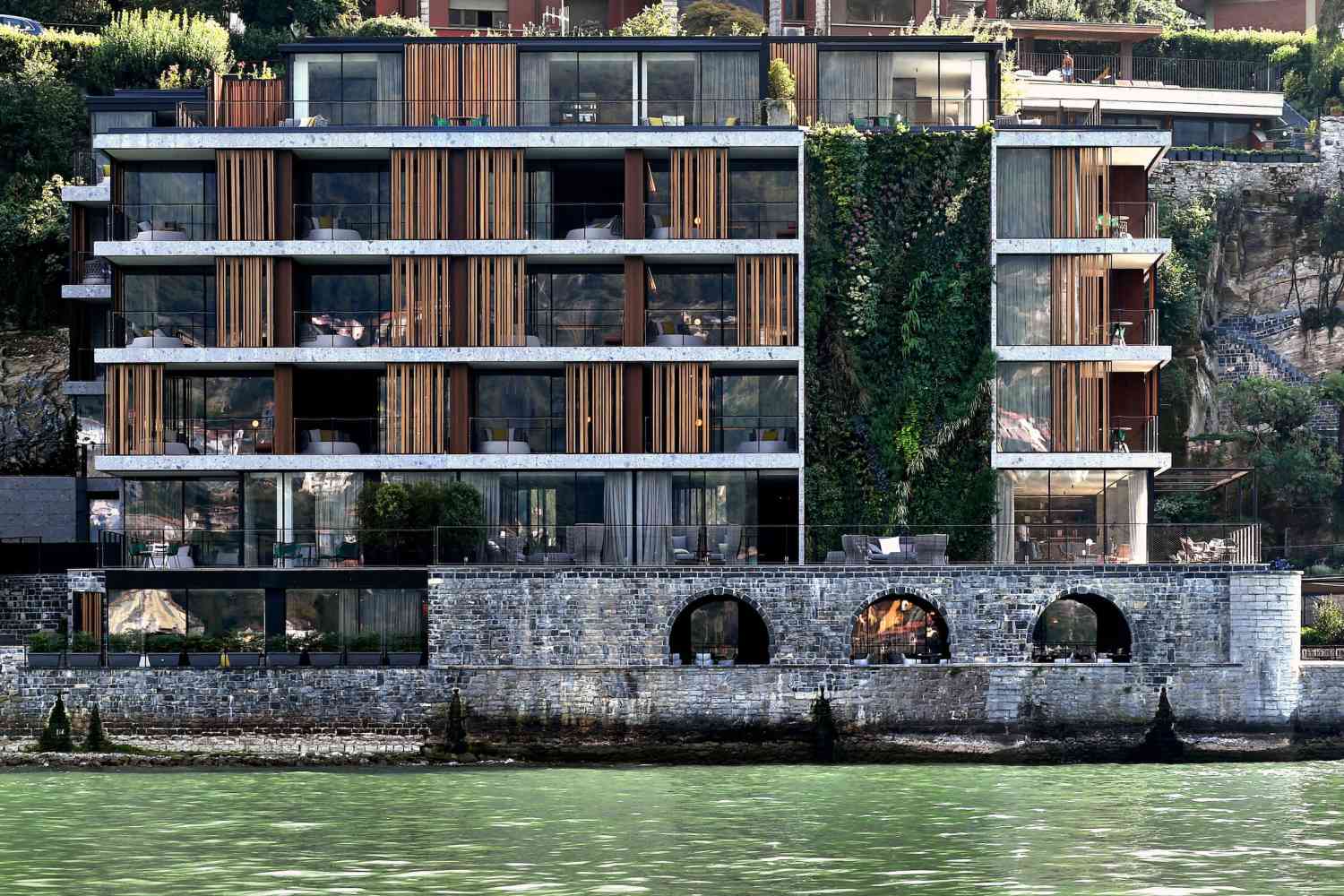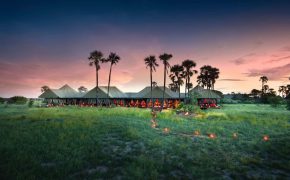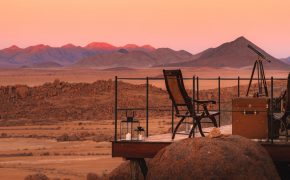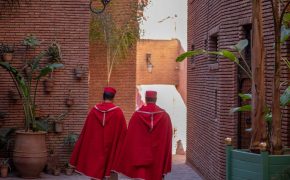Machaba Camp is a traditional style camp nestling in the game-rich Khwai area. The Khwai Concession is a 35 000 hectare reserve located in the northeastern section of the world-famous Okavango Delta and it shares its westerly border with the Moremi Game Reserve.
Machaba Camp is an iconic 1950s style safari camp replete with luxury tented rooms containing luxury en-suite bedroom with modern bathroom, patio deck and relaxation area, and romantic outdoor showers.
The tents are positioned alongside the picturesque Khwai River to optimise privacy and views of the animals coming to the river’s edge to drink, and are linked by a pathway that meanders between large riverine trees.
Nestled in a riverine tree line, the camp offers privacy, spectacular river views and excellent food – enveloped in a layer of warm hospitality. Should you wander away from the comfort of camp you can spot a wealth of land and water-based wildlife.
Machaba Safaris combines the authenticity of the past, the comforts of today and a future-thinking eco-awareness. Our camps feature iconic canvas tents, cooling plunge pools and communal bars and dining areas and reading nooks. We consciously forgo certain conveniences like hairdryers and air-con, and rely on alternative energy to lighten our load on the planet.
ACCOMMODATION
Staying in a safari tent immerses you into the wilds without compromising on the comfort and safety of a luxury room. Your ears will tune into the light rustlings of leaves or the distant roar of the mighty king of the veld.
The wind gently catches and snaps the canvas and the air is alive with scented bushveld air. Being this close to nature evokes feelings of oneness and belonging. Africa is the birthplace of humankind, and a visit to Machaba Safaris feels like coming home.
The en suite luxury bathrooms have hot and cold running water and western-style flush toilets, enabling you to refresh, relax and reflect on another exciting day in nature. A double vanity basin adds to the feeling of home comfort, even though you are thousands of miles away in the heart of nature.
Each room is fitted with electrical lights, lamps and fans. The 220V International plug points can power charging stations, batteries and sleep apnoea machines but are not suitable for hairdryers and electric shavers.
Superior quality mattresses are dressed in natural fabrics and the finest of coverings. Sleeping in the wilds has never been so indulgent. It is not often that one can shower under the twinkle of the stars (or the bright sun) in complete and total privacy.
Taking a shower after a day of adventure in the wilds reminds one of the simple pleasures in life. We supply locally produced bath products made from organic herbs and absorbent comforting towels.
We design each room to maximise privacy and optimise views of the land and we take our decor inspiration from a traditional African safari in terms of the fabrics, texture and hues that we use.
We pair this feeling of opulence with consideration for the environment, which is why we don’t have any permanent structural fixtures and rely on solar energy, forgoing energy-heavy appliances such as shavers, air-conditioning and hairdryers.
DINING
The oversized tented deck area forms the social hub of our camps. You can swap stories at the bar, relax in the lounge or gather around the large fire pits to swap stories, fuelling the feeling of being on an authentic African safari in the bush.
THE PLUNGE POOL
Africa is a sun-drenched country where summer temperatures often reach the high thirties and low forty-degrees Celsius. After a morning safari, counting the passing clouds while floating in a pool or resting on a sun bed is nothing short of sublime.
THE SPA
Melt into the sounds and heat of the bush as a qualified therapist conducts a relaxing facial or a massage in the comfort of your guest room.
CURIO SHOP
Take a piece of Africa home to your friends, colleagues and others close to your heart. We have a collection of handcrafted mementoes that pay tribute to this one of a kind place.
WI-FI ZONE
A holiday in Africa is the perfect place in which to disconnect from the ‘net and connect with friends and nature. We deliberately don’t have Wi-Fi access throughout the camp, but we do have designated Wi-Fi areas if you do need access to the web.
SOLAR ENERGY
We harvest the sun’s energy via solar panels, that store electricity in a battery bank. Our hot water supply is generated by a state of the art Thermodynamic Solar Energy system, which ensures that the camps have hot water, no matter the weather.
ECO FRIENDLY KITCHEN
To keep our eco-footprint light, we use energy-efficient fridges in our kitchens, which we turn off at night. We also use coal cold rooms and cellars to store heat-sensitive items.
AIRSTRIP ACCESS
The camp is only a short game drive away from the nearest airstrip, providing game viewing opportunities en route to and from the camp.
THE LIBRARY
The regions in which we operate are alive with history and local knowledge. In our library, you will find books about popular myths, legends and facts about the local land, the people, plants, animals, insects and more (plus the odd holiday read).
OKAVANGO DELTA
A tapestry of seasonal waterways, the Okavango Delta is home to more than 2 000 plant, 530 bird, 65 fish species, and a large variety of mammal species. Explore this pristine wilderness area in an open-air game vehicle, a mokoro canoe or by foot on a walking safari.
A rare inland delta in the heart of a desert, the Okavango organically shrinks and grows as the water floods in from the Angolan Highlands. But wet or dry season, there is always something to see in this untamed perfect land.
JANUARY – MARCH
The Celsius ranges from 18-31 degrees and daily afternoon thundershowers mean the landscape is rich in greens and blues. The wildlife is spread out in good numbers and all migrant bird species are present.
APRIL – JUNE
The air is drier and the temperatures dip ever so slightly. The wildlife is starting to concentrate on water systems. There is very good all-round viewing however most of the migrant bird species have now gone north.
JULY – SEPTEMBER
The temperatures drop to zero degrees at night but are a warm 25 during the day. There are large wildlife concentrations around water sources and the vegetation is thinning, which makes for excellent visibility
OCTOBER – DECEMBER
The hot parched land lies in anticipation of spring’s first rains. Animals are drawn closer to permanent remaining water sources and the first migrant birds return. The first rains make for good wildlife viewing.
GAME DRIVES
The word “safari” conjures up images of open-air vehicles, vast open plains and herds of great animals. A game drive is an iconic way in which to take a safari and get in touch with the wilds. The beauty of a game drive is that you can cover vast areas of ground to find the animals you want to see from the safety and comfort of a customised open-sided vehicle.
Our rangers agree – no two drives are ever the same. Each outing is ripe with potential. Sometimes it will be a pack of African wild dogs trotting on the hunt and at others, it may be a lioness drinking at a waterhole with her cubs. It’s nature’s version of the lotto.
There is no better place to learn about the delicate relationship between biomes, plants and animals than in the bush – where the animals greatly outnumber the humans.
Game viewing is at its best around dawn and dusk. On a typical day, the first game vehicle leaves camp before the sun is up and the second drive heads out into the wilds in the late afternoon.
Use the downtime in between drives to relax in the pool, or have a nap before heading out again. The blazing orange and red beauty of an African sunrise or sunset is something one never forgets.
Safety is always a priority when out on a game drive. At times your guide may ask you to remain quiet, calm, stay seated and keep your limbs inside the vehicle. It is also important to resist the urge to reach out and touch a curious creature that has approached the party for a closer look.
It’s surprising how fresh air and adrenalin can really work up an appetite. All of our morning game drives include a tea/coffee break with nibbles and evening drives break for sundowners and snacks. If however, your ranger is on the trail of a something exciting, he may encourage you to skip the break to track down a rare game-viewing experience instead.
A typical game drive is 3 hours or longer, so we recommend that you use the bathroom before you leave. If you do need to answer nature’s call when out on a drive, your guide will show you to the lava – tree (lavatory).
NIGHT GAME DRIVES
Night drives are markedly different from daytime game drives. As the heavy sun dips below the African horizon, the world takes on a different scent, sound and shape.
Armed only with red filter night light – the game is on to spot predators hunting or eating, or the rare porcupine or aardvark. After dark predators roam and the night vibrates with rustlings and calls. There is nothing more exhilarating than searching for the Big Five from an open vehicle at night.
In the space of a night, one’s senses become heightened and more focussed. Before long you will learn how to spot unusual shapes, sounds or a strange movement. It could be something small and shy or it could be a large cat on the prowl.
Roaming a remote part of Earth under the southern stars is an unforgettable experience. It’s a game of patience. Of listening and learning to scan the trees and shrubs for the glint of an eye or the low growl in a throat. The reward is in the waiting.
Night drive vehicles are equipped with spotlights to scan the bush and illuminate the animals. Given that you can only see as far as your flashlight, it’s easy to start feeling like the prey. You may see a lion kill, but typically night safaris are about smaller species that are rarely seen during the day like bush babies, genets and small felines.
It is important to remember that you are in the wilds in an open vehicle at night. Your highly-trained guide will do everything he can to keep you safe and at times may ask you to remain calm, seated and silent.
You will be surprised at how close animals often are – even walking alongside the vehicle – without your knowing it. So if you need to leave the vehicle always ask your ranger’s permission first.
There is indescribable contentment that fills the soul when witnessing a sunset in the bush. The vast open space, the palette of colours and the scent of the cooling air is perfectly paired with sundowners and snacks. Revitalising the body and mind ready for an exciting drive in the dark back to camp to enjoy a scrumptious dinner.
Anticipation is a large part of a night drive. Sometimes you may see a big cat within minutes of leaving camp and at other times you may only experience the wind in your hair and the beauty of the stars. But we can promise you this: there is nothing quite the like the explosive kill of a predator catching its prey at night.
WALKING SAFARIS
Nothing heightens the senses like hiking through an area alive with threatening predators. Every sound is amplified, every movement is magnified and the sheer size of large animals is put into perspective when seen up close and on foot. A walking safari is a rich opportunity in which to experience the details of life in the bush – both big and small.
Set out in the morning light on a walking safari equipped with your survival instincts and the company of a professional armed guide. Being on foot grants you access to places that game vehicles can’t reach and affords you the viewing advantages of silence and stealth.
Rekindle your human instincts of how to track and read the signs of the bush. With your guide’s help, you will see your surroundings in a completely different and unforgettable light. Every scent, marking or sound is a clue.
Pit your instincts against the animals of the wild as you travel on foot through some of the most remote regions of the bush. You will learn how to tune into telling details and smaller creatures that would otherwise be missed.
Before setting off, your guide will give you a briefing so that you are familiar with the rules and safety instructions. He will outline typical animal behaviour and how to handle any dangerous encounters should they arise.
Although your guide will be armed for your safety, it’s important to remember that you in a wild environment and following your guide’s instructions is key.
A walking safari is a perfect way to immerse yourself in a fascinating world of plants, seeds, insects, reptiles and small animals. You can see spoor prints and droppings or feel the polished surface of a ‘rubbing-post’ where animals have come after a mud bath. These facets of a walking safari piece together a holistic picture of the ecology in a specific area.
Dress in khakis or olive greens to blend in with the environment. The African sun is ruthless and a natural fabric like cotton offers breathability, comfort, absorbs moisture well, is not prone to odours and is strong enough to withstand the odd thorn. A brimmed hat is essential as is a daypack containing a high SPF sunscreen, camera, binoculars and water bottle.
Our expert guides will show you how a pile of old bones or a seed pod can provide insight into the evolutionary adaptation of animals, insects and plants. They will also teach you how to read animal tracks, identify a species by its scent and piece together clues to work out what occurred in an area in the preceding hours or even days.
BIRD WATCHING
Bird lovers are spoilt for choice when it comes to birdwatching in southern Africa. The region’s wealth of varied habitats – including watering holes, forests, flood plains, mud pans and wetlands – attract a vast range resident and migratory species.
The summer months see the African skies heavy with flocks of returning migratory birds. The waters and open floodplains of the Okavango Delta make it Botswana’s prime birding destination with over 500 recorded species, while Hwange National Park in Zimbabwe boasts good infrastructure and boasts 420 species on file.
From the waders of the Okavango Delta to the raptors in Hwange National Park, bird lovers can see hundreds of different species thanks to stringent protection laws. New to the hobby or a seasoned twitcher, specialist Machaba Safaris guides are on hand to conduct private tours.
From great flocks of flamingos, Southern Crowned Cranes and giant raptors, to ground hornbills and Mocking Cliff Chats, and elusive African Crakes and Pel’s Fishing Owls – Machaba Safaris has camps and lodges in some of the region’s prime birding hotspots.
Although our guides are expert bird twitchers who can help you with your must-see list, you can improve your chances of a successful outing by investing in a good pair of binoculars and researching which species to look for. Silence is also a birder’s best friend and we recommend taking a guided bird walk or exploring the watery regions in a mokoro canoe.
When it comes to birding, southern Africa sports its Big 6 to spot, namely: the Lappet-faced Vulture, Saddle-billed Stork, Ground Hornbill, Martial Eagle, Kori Bustard and the most difficult of all – the nocturnal Pel’s Fishing Owl.
The good climate and varied terrain mean that any season is a good time to visit southern Africa. In dry months, large flocks of birds gather around permanent water sources to feast on trapped fish and crustaceans. While summer months (November to March) see migrant species return. In prime birding areas, birders have recorded over 300 species in three to four days.
The Okavango Delta, in particular, provides shelter to many threatened and endangered species. It also has the largest population of Wattled Cranes and the Slaty Egrets in Africa (if not the world).
Other notable avian species include the White-Backed Night Heron, Pel’s Fishing-Owl and the African Skimmer. Botswana also has the most renowned Greater Flamingo and Lesser Flamingo breeding sites in southern Africa.
MOKORO SAFARIS
As the Okavango Delta floods with the seasons our safaris take to the waters. Inspired by the people of the past who used traditional wooden mokoros as a form of transport, a modern version of this dugout canoe is a relaxing way to explore the reed-lined waterways and discover smaller creatures you wouldn’t typically see from a vehicle or on foot.
The silence of travelling in a mokoro means that birds and animals are less likely to take fright, allowing you the opportunity to capture that perfect photo and see that lesser-spotted bird. Very little beats the tranquillity of gliding through narrow water channels in the company of smaller amphibians like reed frogs and dragonflies that you would usually miss out on.
Your experienced Machaba Safaris guide will navigate the channels while you relax and soak up the sights and sounds. From wallowing elephants to small winged water creatures, life on the water is an aquatic world of its own.
Thousands of years ago, the Bushmen used dug-out canoes to effortlessly move around the Okavango Delta. Today, eco-friendly fibreglass versions are used for game viewing safaris and the mokoro has become the iconic symbol of the Delta. Gliding over mirror-like bodies of water in one of the most idyllic spots in the world is an experience that is quite unrivalled.
A little like the gondolas of Venice, your boat poler will propel your vessel around the channels and waterways of the Delta, giving you the freedom to absorb the diversity of its wildlife species from the comfort of your seat. From plants to birds, to insects and large animals, the mokoro is the perfect place from which to view it all.
It’s easy to forget about sunburn when on the water, however sunshine reflecting off a glossy surface means that you will burn from above and below your hat. Wear sunglasses, drink lots of water to stay hydrated and regularly apply a high (50+) SPF sunscreen. Slip-proof rubber-soled shoes are recommended and don’t forget the binoculars and camera.
The world seems a little bit bigger when viewed from the water. You will be able to appreciate the size and scale of elephants drinking and hippos and crocodiles basking – all from the safety of your boat and the protection of a highly knowledgeable Machaba Safaris guide.
CULTURAL EXCHANGE
The purpose of going on a safari was not limited to seeing animals. It was a journey of discovery; of new lands, new plants, new tribes, foods, languages and traditions. Machaba Safaris embraces this authentic experience by weaving in rich opportunities for cultural engagement with Africa’s local people.
As a Machaba Safaris’ traveller, you have an open invitation to meet the local villagers and witness what life in a remote part of Africa is like. The wealth of generosity and hospitality that every guest receives on arrival is heartwarming.
Machaba Safaris are actively involved in meaningful initiatives that offer support to villagers living in the remote areas in which we operate. And while we are the ones doing the helping, we end up receiving so much more than we could ever have imagined.
Language is no barrier when it comes to connecting with the people of Africa. Take tea in a local village, watch a display of traditional dancing or even give a talk to a class filled with young and eager minds.
As with any city, the villages in Africa have their ways and traditions. At Verney’s in Zimbabwe, we offer a day trip to the local village and primary school at Hwange Main, which forms part of our Social Responsibility programme. In Botswana, you can join us on an excursion to Dithsipi and visit Gonnye Sethlare primary school.
Machaba Safaris works alongside local communities to build schools, provide educational supplies and provide teacher’s wages. Depending on the region you’re visiting, you have an open invitation to visit these schools, have tea with the teachers, meet the pupils and even give the class a lesson.
The people of sub-Saharan Africa are friendly and always up for a laugh. They may seem demure at first. This is a sign of respect and it is up to you to break the ice, share a smile and establish a common bond. This moment of connection can be overwhelming and is a reminder we are fundamentally the same.
The people of Africa don’t need pity, but they do need access to basic health services and education. Simply by travelling with us – and indirectly contributing to our social responsibility initiatives – you’ve already shown your support. But why not join us on a visit to one of our projects. Giving of yourself is the greatest gift you can give to yourself.
